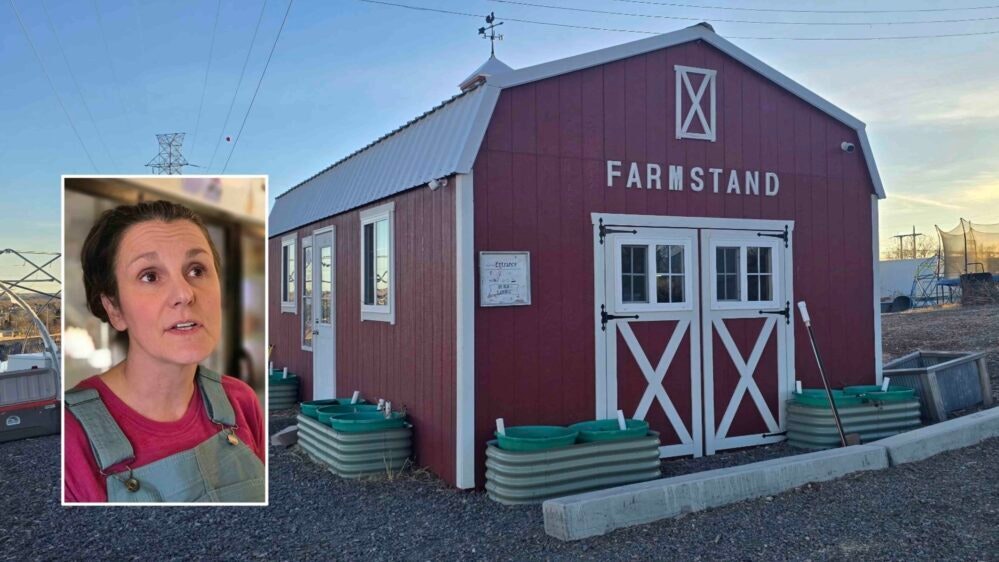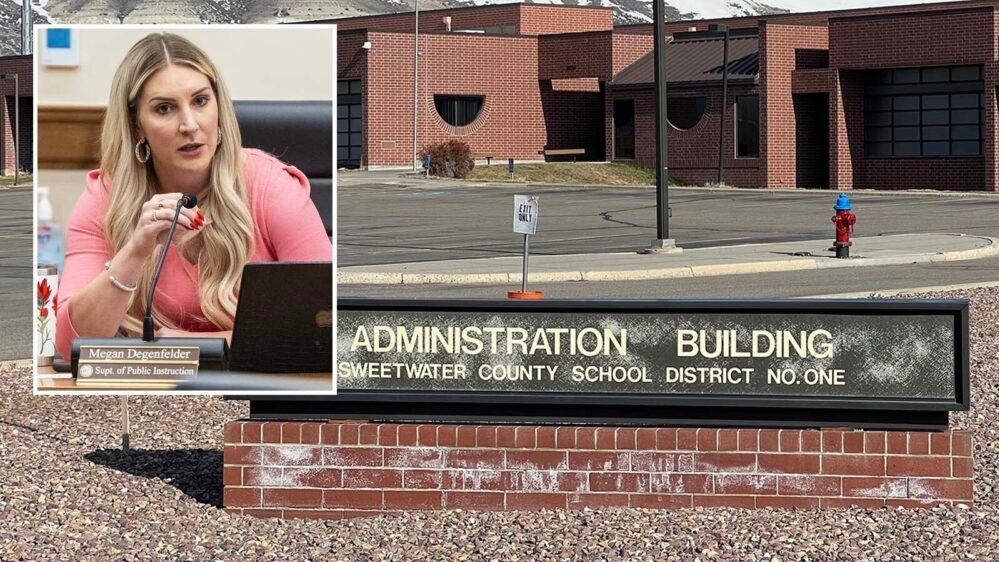Although President Donald Trump has vowed to repeal all benefits for green energy policies since taking office, the Wyoming Legislature is taking a more measured step to the issue.
On Monday, the state Senate Minerals, Business and Economic Development Committee declined to advance a “Make Carbon Dioxide Great Again” bill that would have cut out low-carbon energy standards in Wyoming and treated carbon dioxide as a nutrient.
No member of the committee made a motion to advance the bill for a vote, amounting to a unanimous rejection from the panel.
The major concern issued about the bill on Monday was that it would put the federal government in charge of regulating Wyoming’s carbon dioxide emissions, which is currently managed on a state level.
State Sen. Cheri Steinmetz, R-Lingle, the sponsor of Senate File 92, wasn’t buying this reason and said Wyoming should do what it believes is right when it comes to managing these emissions, no matter what the federal government has to say about it.
“While President Trump is taking decisive action designed to base public policy on truth and common sense, Wyoming is content to rely on federal subsidies and cower in the corner begging for a handout from the federal government,” she told Cowboy State Daily. “It is offensive to the hard-working citizens who bear the burden of these costly boondoggles. We can and should do better.”
Sen. Stacy Jones, R-Rock Springs, told Cowboy State Daily she didn’t advance the bill because of the risk of giving up primacy to the federal government.
“We cannot give up that to the federal government,” Jones said.
Jones also said she was influenced by testimony from a former college professor who said any amount of CO2 Wyoming creates would be negligible compared to what China is producing.
What It Does
Steinmetz’s bill calls for Wyoming to establish a state policy that declares carbon dioxide a positive resource rather than a pollutant. The bill prohibits the state from seeking any measures to reduce CO2’s presence in the air or create any “net-zero” targets.
It is her perspective that carbon dioxide is a benefit to the Earth, and the bill asserts that carbon dioxide serves a valuable role in agricultural production as “a foundational nutrient necessary for all life on Earth.” The carbon cycle, Steinmetz said, “is a biological necessity for life on Earth.”
Many scientists disagree and argue that CO2 is the biggest contributor to climate change.
The bill would cut out low-carbon energy standards in Wyoming and repeal legislation passed by the Legislature in 2020 that requires coal power plant owners to retrofit their facilities with carbon capture, use and storage technologies as an alternative to having to shut down.
Mary Throne, chair of the Wyoming Public Services Commission, believes that requirement has been successful to date.
Under the current law, each utility company is allowed to initiate a cost recovery mechanism that allows them to charge up to 2% of each customer's total electric bill to help shoulder the cost of the low carbon energy standard passed by the Legislature.
Steinmetz’s bill would repeal all these requirements and require utility companies to refund any rate taxes that customers paid to help install the carbon capture technology, but only for unspent money. How these refunds would be delivered would be up to the Public Service Commission.
The bill would also eliminate any state funding and participation in carbon capture and sequestration efforts throughout the state, including the Wyoming Integrated Test Center and about half of the governor’s Energy Matching Funds program.
What Does The Future Hold?
A rule known as the endangerment finding requires the Environmental Protection Agency to regulate greenhouse gases and considers CO2 a pollutant at the federal level.
On his first day back in office in the White House, Trump ordered the EPA administrator and other agency leaders to make a recommendation within 30 days on the “legality and continued applicability” of the endangerment finding, setting up an early clash over the science of climate change. Eliminating the rule would also weaken the agency’s authority to curb emissions from automobile exhaust, power plants, oil and gas wells, factories and more.
The Department of Environmental Quality (DEQ) previously indicated the bill would impact Wyoming’s ability to regulate its own air quality and said that Wyoming facilities may need to obtain permits from the EPA for carbon dioxide.
Todd Parfitt, director of the DEQ, said his main concern with the bill is the fact that the EPA is authorized to regulate greenhouse gases, which it considers a pollutant. By removing state regulation of carbon dioxide, it would hand off this regulation and related permitting to the federal government. Throne said this type of scenario is “never convenient” for businesses.
Jody Levin, a lobbyist speaking on behalf of the trona industry, and Wyoming Mining Association Executive Director Travis Deti agreed, saying their industries do not want to have to go to the EPA for these types of permits. Deti warned that this could become a very unpleasant scenario for his industry if a Democratic presidential administration takes over in four years.
“We were in a very different position eight months ago,” he said.
Although he’s no fan of carbon capture and sequestration, Deti also said his industry doesn’t oppose the carbon capture requirements for emissions because it helps them stay viable with utility companies, whose customers generally want cleaner emission products.
“The chance to reshape the narrative, I think that’s good,” Deti said. “But I think we’ve got to keep some things in mind, this state of Wyoming has been a leader in trying to crack the carbon capture nut. I would be very hesitant to see us take the foot off the gas pedal and start pumping the brakes.”
But Sen. Laura Pearson, R-Kemmerer, said money shouldn’t be the only factor considered.
Joey Correnti, executive director of Rural Wyoming Matters, agreed, saying common sense in doing what’s best for Wyoming should be the highest priority.
The Wyoming Farm Bureau Federation also supported the bill.
“We recognize that CO2 plays an important role in agriculture and energy industries in our state and should be managed as a resource and not a pollutant at the state level,” Kelly Carpenter, a representative of the group, said.
Amendment Not Enough
Currently, four states including Wyoming have primacy through the Class VI Carbon Capture, Utilization & Storage program. DEQ reported the legislation would end its role with underground injection control (UIC) permitting for carbon capture and sequestration projects in Wyoming and said that role would go to the EPA.
Steinmetz brought an amendment on Monday clarifying Wyoming would continue its oversight of this program if her bill were enacted into law.
Parfitt said it still didn’t alleviate all of his concerns and doesn’t make clear what Wyoming would be able to maintain authority over. He suggested his own amendment that Steinmetz’s bill only go into effect if Congress or a federal court prohibits the EPA from regulating carbon dioxide, then it shall be the policy of the state of Wyoming.
Leo Wolfson can be reached at leo@cowboystatedaily.com.





